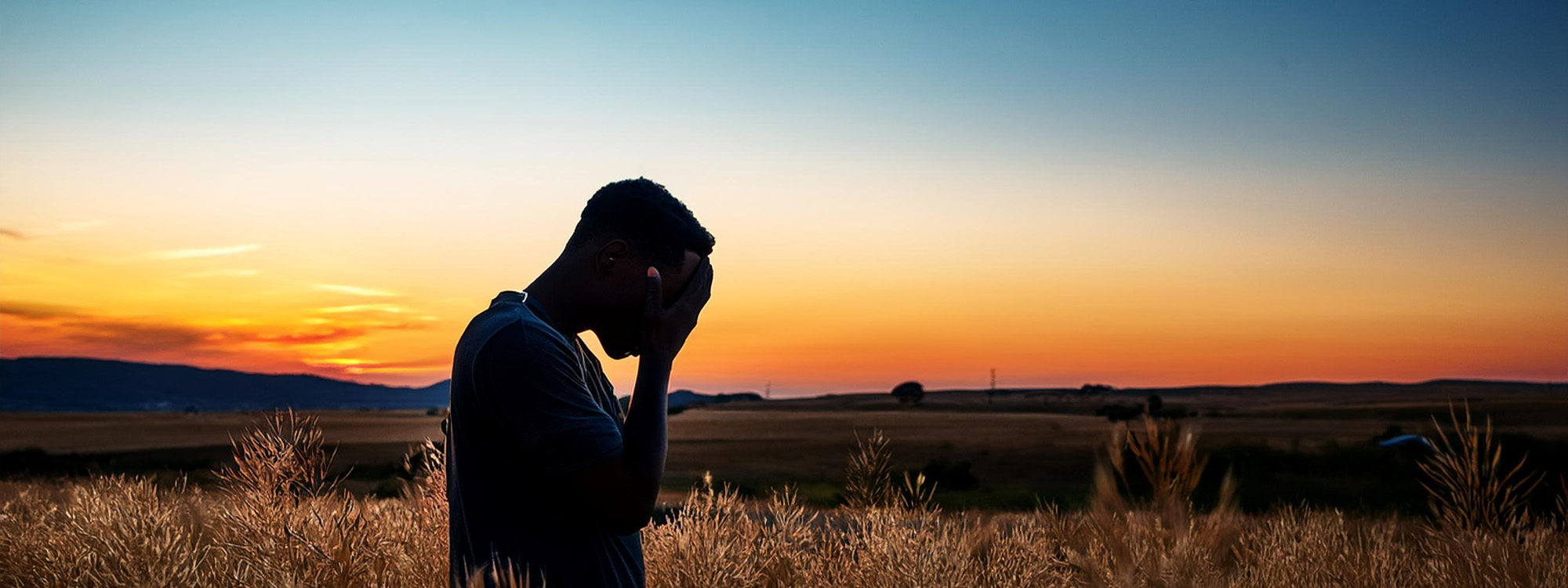| |
We deal with the topic of suicide similarly to the topic of pedophilia: denial, pre-formed narratives and a fear of listening to details of the truth. I have been aware I was a pedophile since I was 15, and I have been suicidally-minded most of the time since I was 12.
The two things are distinct, but have interacted over the course of my life. I have never acted on my desires—either to die or to break any law that protects children. I am aware of the harms to others that both actions entail.
I have tried to talk to professionals, random people on Twitter, my friends and others about both topics, and I have reached the conclusion that as a species, we mostly don't want open conversation on these topics to happen. While I don't view them as exactly equivalent, in both cases they represent some things our whole society simply cannot face up to. These affect our ability to clearly hear what pedophiles and the suicidal have to say, still less to respond to the implications.
Since I can publish this here, though, I want to say outright what I believe on the topic.
First, a person able to make a rational decision should have the right to end their own life and to seek impartial professional assistance to do so. They should also have the right to seek solo or fully consensual mutual sexual gratification in private.
Second, I believe that decisions to do any of the above are not intrinsically irrational nor intrinsically disordered, no matter how much they outrage others' values.
Third, nobody has the right (nor obligation) to take another's life. Nobody has the right to seek sexual gratification from any being who cannot give informed consent.
What's perhaps extra frustrating for me as a member of two groups—the chronically suicidal and the pedophilic— is that communities set up to support people on one topic are typically inadequate (sometimes even positively unhelpful) on the other.
Suicidality is a common topic in pedophile support groups and I have discussed mine, but there are severe constraints on how it can be discussed, usually backed up with rules. Presenting suicide as a rational choice in the circumstances, still less discussing plans, is rejected as too risky a thing to let others hear, especially those who are in crisis and not thinking straight. It is 'encouraging suicide'. There are also those who reject any such talk as invalidating to people with pedophilia as a whole group, and thus politically unacceptable.
When I have connected to more general types of support for suicidality (forums, professionals), I have usually considered it impossible or actively dangerous to share information about my pedophilia. Brutally, most people believe in supporting the suicidal, but not if that means supporting a self-identified pedophile. Even more brutally, some people believe that suicide is an irrational choice for everyone except pedophiles. I know this because it's the sort of thing people say openly on social media, and their observations tend not to get removed, despite supposedly breaking rules against encouraging suicide. While specialist forums might be more consistently anti-suicide than this, showing up at a suicide support forum and announcing you're a pedophile is more likely to get you banned than supported.
Some of the above situation is now being worsened by legislation that criminalises online sharing of what is called 'harmful content' (even by people who didn't author it). I'm not talking about images, rhetoric or instructions. I mean simple statements of feelings. Sober, objective discussion of pedophilia and suicidality sits in an overlap of two topics considered harmful even to discuss outside certain acceptable narratives. This intensifies the chilling effect on attempts to represent perspectives such as mine.
In more public spheres (such as general social media or in-person group settings) suicidal pedophiles have unusually constrained options to talk out our situation, even with professionals. An honest public conversation on our predicament is barely possible at all. This is also true even within specialist mental health circles where professionals stand out and risk consequences for 'supporting pedophiles'.
We are thus abandoned to our fate.
I don't know how many of us succeed in completing suicide (this isn't being measured anywhere), but in some ways, completion is not the most important statistic to me. A person who is dead has ended their own suffering. Someone who goes on living every day while wishing to die is the more imprisoned. 'Die.' is a shorter sentence than 'Live.'
It is understandable why we have some of the rules we do around discussion. Obviously, suicide is a terrible end to a life if it might have been lived well. It also harms survivors. Similarly, it's a terrible and terrifying outcome when a person with pedophilia ends up taking an action that harms a child, and this also has knock on effects on others.
More thoughtful humans mostly prefer to believe that both outcomes are preventable, but without very many facts or theories on exactly how to deal with the underlying causes or alleviate the situation of pedophiles and the suicidal, we instead resort to policing speech and behaviour around both topics instead.
As with many taboo topics in the past—including sexual desire itself—humans seem intuitively to reach for silencing and coercion to try to avoid letting genies out of bottles.
But this is superstition. There are no genies, only real people. We do not neutralise human inclinations or behaviours by refusing to name them. All progress on such things has been made when such things were acknowledged, studied, thought about objectively, appropriately destigmatised and solutions iterated until there is measurably less occurrence of the problem. There has been some society-wide progress on this as regards suicide but it remains the second most common cause of death, so clearly we have a lot more iteration to do. Meanwhile, there has been almost no progress to speak of regarding our understanding of pedophilia, about which almost nothing is objectively understood with any certainty.
As we have made progress on destigmatising suicidal thoughts, certain primitive attitudes toward them have been challenged. I'm going to list some reactions to suicide talk that were once common but have begun to wither, and invite you to consider how much they resemble current reactions to learning of someone's pedophile desires. Perhaps also consider why, if you think they're untrue about suicide, you have less problem with hearing them about pedophilia.
'It's wrong.'
'There has to be something wrong with you to think it.'
'You're too young to think this.'
'It's against nature.'
'This is the devil speaking inside you.'
'This isn't the person I know.'
'You're saying this for attention. Think about other people's feelings.'
'You owe it to your family not to think about this.'
There are also some narratives from more progressive or compassionate views of suicidal thoughts that seem to come up about pedophilia too. They're more seductive to us now because a lot of us still believe them, even though they are usually used with far more confidence than our knowledge allows:
'If you get help, you can leave this behind.'
'You haven't tried enough ways to resist this.'
'Dwelling on it isn't going to help.'
'This is something your brain is tricking you into.'
'You can learn to be different.'
'There is a solution to this.'
'It will turn out OK in the end and in time you'll see that.'
Personally speaking, I have never got any help from the above bromides with regard to either pedophilia or suicide. I don't think any of them are correct in my case. The first set are based on false intuitions that deny suicidality is a common and normal part of human experience and must come from 'outside'.
The second set are advice based on experience of the many cases where things did in fact get better after someone was suicidal. They ignore the cases where nothing improved or things got worse or where the suicide was completed. They are based not on any certainty that things 'must' get better but on the wager that they might and you'll only find out if you live.
This possibly sounds heartless and defeatist, but when the popular narratives about the thing you're experiencing are patently off-target for your case, it makes you feel more alone and miserable and not helped at all, no matter how well-intentioned the sentiments. (Sometimes the person saying them isn't so much well-intentioned as they just want you to stop talking, and in such cases it would probably be less frustrating for them to say that instead.)
But just because clichés don't help, it doesn't mean nothing does. I have benefitted from the ability to talk in depth about my feelings in my own framing and my own words. Sharing my experiences and thoughts, as I am doing now, and as I often do in even franker private conversations, actually does seem to alleviate rather than encourage any desire I might have to do illegal things and to harm myself.
I don't know why this is, but the best conversations for this have been ones where the person I talked to seems to 'emotionally survive' the shock of hearing my taboo expressions: the conversation works through, and I get to say everything that is jiggling away in my mind, no matter how scandalising it would be to others and no matter how utterly stark it makes my continued lack of hope for a better future. Something about being allowed to say that suicide is the best choice in the my circumstance or that I will always desire young boys—and then finding the world does not implode as a result—seems to help.
This is what counsellors tend to be particularly good at facilitating, being trained to let someone talk and not rush to prescribing a solution—although even counsellors are not guaranteed to be informed or free from prejudice on these topics. Legislation can interfere with their discretion over letting these conversations proceed too.
Where conversations like this have gone well, the person I spoke to did not react with instant rejection or condemnation. They were not defensive. They did not fly into panic or despair themselves, perhaps relating to their own underlying traumas on the subjects. And they did not break my confidence by escalating to emergency services or child protection or, worse, telling other people in my life without my consent. Nor by 'calling me out' in some public realm.
Some of the latter tools are obviously necessary in some cases, for example when a child is clearly in imminent danger. Some people deliberately disclose in order to trigger them when they lose faith in their ability to steer their own life.
But from the point of view of the person disclosing, they are usually the worst and most frightening ways for these conversations to end. They introduce strangers into the situation, ones with their own agendas, rules and thresholds and best guesses on risks. These are imperfect at best and sometimes based on misapplication of lessons from well-publicised disasters.
These strangers usually lack any good solution for the person who disclosed, just some tools to contain them, such as involuntary committal, or removal from a family home, or criminal investigation. These tools are blunt, brutal and poorly customised to the range of these situations. If those things happened to me, I know my continued freedom and peace of mind would be at an end, even if they played out without ultimate legal consequence. Such outcomes would increase my suicidality without affecting my pedophilia or alleviating the societal pinch it puts me in.
Many people would maintain that's a price worth paying and that I am acceptable collateral damage. Well, I'm self-destructive by nature, but no, I do not agree.
That's the bottom line, and it's why pedophiles rarely discuss their pedophilia with professionals and it's why the determinedly suicidal stop talking to anyone—even their closest friends—about the topic. The fear of knock-on effects is also why both pedophiles and suicidal people tend to isolate themselves and push others away. If you're afraid your life is about to blow up, you don't encourage anyone to stand close and catch the shrapnel.
But still, open talk helps. On suicide, for example, I have talked through methods, locations, optimal timing, the balance of arguments for and against. On pedophilia, I have talked about the range of children I'm attracted to, what my fantasies consist of and any situations where fantasies started to resemble plans.
Outside of the consulting room, with other suicidal people, and with other pedophiles, I've gone further and crossed thresholds that might have activated a formal counsellor's requirement to breach confidence. This is the point where you get a little anxious and wonder what I mean, but whatever I might have blurted out in those conversations (certainly no admissions of doing anything illegal) has never resulted in a child being endangered nor any life ending.
I have seldom left such a conversation feeling the chance of either was heightened. Clearly something stronger than genies is working toward my survival and others' safety.
I wish we took this kind of experience more seriously instead of being afraid of words. But of course our attention is diverted by the much less common cases where words are spoken and disaster ensues, even though these may be correlations rather than causes.
Ultimately, I think that people also simply dislike the fact that such open conversations, while they bring relief and do not lead to disaster, do not actually 'resolve' the thing that gave rise to them.
Externalising suicidial and pedophilic thoughts is really the main relief I experience, but I fully expect to be suicidal as long as I live and to still have attraction toward children until I die. I cannot see any mechanism whereby I will be 'made normal' instead. Bruteforce general-purpose methods like SSRIs have never worked for me, and made suicidality worse. Exercise and talk seem to reduce the urgency of the desire to die. Nothing has ever influenced the persistence of my pedophilia, nor am I aware of any treatment that has a plausible claim to do so for me or any other pedophile.
The situation of pedophiles generally in society has worsened in recent years, including our legal access to the things that do help (such as fictional outlets). In my personal case, the onset of middle age has interacted with that to reduce my chances of intimate friendships and relationships. Suicide has remained a highly plausible and entirely rationally justifiable solution to my mounting problems. Obviously, I am still considering it in preference to waiting to see if things improve. I think I should be free to do so.
We love the story of the hero who rescued some unfortunate from the bridge and who gets thanked years later by someone whose life turned around. We turn uneasily away from the stories where failure and disappointment and loneliness accumulate until they become unbearable, for fear they are all too true and acknowledging their truth may undermine our view of the improvability of the world. These days news sources don't even report a suicide as a suicide, they just coyly hint and mention some helpline at the bottom of the story.
Unlike when I was 14, and made a suicidal gesture which was really a cry for rescue, I have now had a chance to see for myself what future prospects I might have been cutting off had I gone through with it. Frankly, with this perfect retrospective knowledge of what life had to offer me, I'm not sure what I would recommend to my 14 year old self. My advice would not be a simple 'don't do it; it gets better'. It might have been the permanent solution to what I later discovered to be a permanent problem: it wasn't possible to live this life well in the era in which it had to be lived. It wasn't my fault.
I feel better, at least, for saying that before the end.
About the author: I have been writing and talking about the experience of being a pedophile since 2017. Once on twitter until my account was banned in 2020, I co-led Virtuous Pedophiles from 2021 to 2025. I now continue to look for ways to improve the lives of pedophiles, but never at the expense of harming children. I have never viewed illegal material, and never sought or engaged in sexual activity with any child. The rest of my life is countryside walking, friends, Radio 3 and feeling doleful about ageing. No Offence is currently live on Substack, where you can subscribe for email updates. This content is either previously published there or scheduled for future publication. | |






 suicidal thoughts vs being suicidal
suicidal thoughts vs being suicidal suicide prevention with evert
suicide prevention with evert the iwf: comparing harm from viewing to other harms
the iwf: comparing harm from viewing to other harms